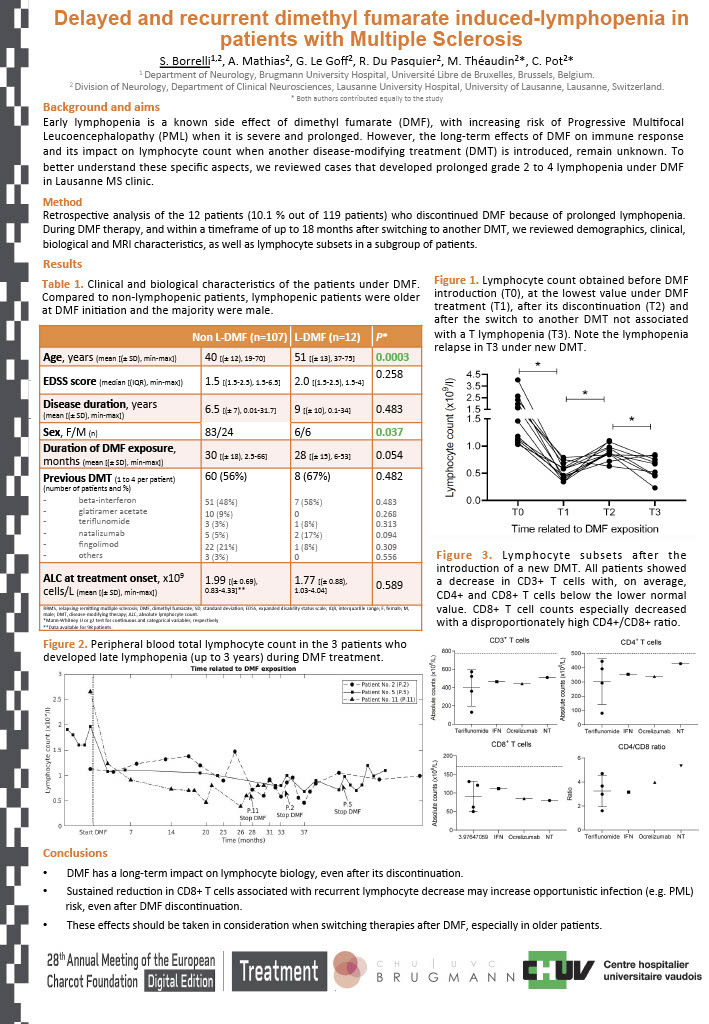Delayed and recurrent dimethyl fumarate induced-lymphopenia in patients with Multiple Sclerosis.
Abstract
Background:
Early lymphopenia is a known side effect of dimethyl fumarate, a disease-modifying therapy for relapsing-remitting MS. However, the long-term effects after the discontinuation of dimethyl fumarate on immune response and its impact on lymphocyte counts when another diseasemodifying
treatment is introduced remain unknown. To better understand these specific aspects, we reviewed cases that develop prolonged grade 2 to 4 lymphopenia under dimethyl fumarate in Lausanne MS clinic.
Method:
Retrospective analysis of the 12 patients (10.1 %) who discontinued dimethyl fumarate because of prolonged lymphopenia amongst the 119 patients treated with dimethyl fumarate. We reviewed their demographics, as well as their clinical, biological and MRI characteristics compared to the non-lymphopenic patients, during dimethyl fumarate therapy, and within a timeframe of up to 18 months after switching to another disease-modifying treatment. We also focused on lymphocyte subsets in a subgroup of patients.
Results:
Compared to non-lymphopenic patients, lymphopenic patients were older at dimethyl fumarate initiation (51.4 yo vs 39.7, p= 0.0003) and the majority were male (p= 0.037). Three of them (25 %) developed delayed lymphopenia, more than one year after treatment onset. Despite persistent
lymphopenia, three patients experienced disease activity. Amongst the nine patients (75 %) who were switched to another therapy, five (55.6 %) presented recurrent lymphopenia, predominantly with a CD8+ T cell decrease.
Conclusions:
Dimethyl fumarate has a long-term impact on lymphocyte biology, even after its discontinuation, with a sustained reduction in CD8+ T cells that may increase opportunistic infection risk, and should be taken in consideration when switching therapies after dimethyl fumarate.

